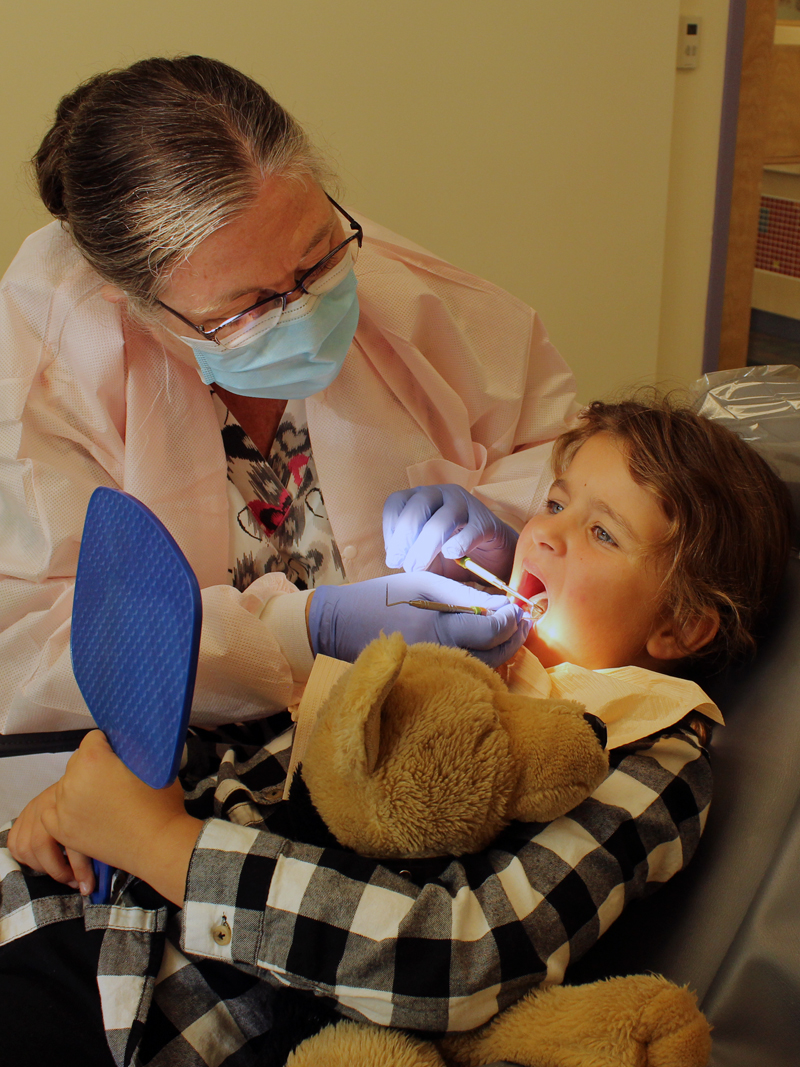Dental Emergencies

Avoiding Injuries
In the event of a dental emergency, don’t hesitate to reach out to us. If urgent treatment is required outside regular hours, please go to the emergency room.
Brooker Dental providers are prepared to aid you whenever your child’s dental well-being is in jeopardy. Here are some few tips to help your child avoid dental emergencies.
- Child-proof your house to prevent falls.
- Avoid letting your child chew on hard foods like ice or popcorn kernels.
- Ensure the use of car seats for young children and seat belts for older ones.
- If your child plays contact sports, consider a mouthguard for protection (Inquire about a custom-fitted mouthguard with us)
- Teach your children not to walk or run with things in their mouths.
- Never shove a spoon in your child’s mouth if they are not interested to avoid injury.
Adult Teeth Coming In Behind Baby Teeth
This is a very common occurrence with children, usually the result of a lower, primary (baby) tooth not falling out when the permanent tooth is coming in. In most cases if the child starts wiggling the baby tooth, it will fall out on its own within two months. If it doesn’t, then contact your dentist, where they can easily remove the baby tooth. The adult tooth should then slide into the proper place.
Loose Tooth
If your child has a very loose tooth, it should be removed to avoid being swallowed or inhaled. Gently but firmly push the tooth to the front and back while using a twisting motion. Have your child bite on a gauze or cloth for a few minutes to control any bleeding.
Object Caught In Teeth
If your child has something caught between the teeth, use dental floss gently to remove it. Never use a metal, plastic, or sharp tool to remove a stuck object. If you are unable to remove the item with dental floss, give us a call.
Toothache
Clean the area of the affected tooth. Rinse the mouth thoroughly with warm water and/or use dental floss to dislodge any food that may be impacted. If the pain still exists, contact the dentist. Do not place aspirin or heat on the gum or on the aching tooth. If the face is swollen, apply cold compresses and contact your dentist immediately.
Cut or Bitten Tongue, Lip or Cheek
Apply ice to injured areas to help control swelling. If there is bleeding, apply firm but gentle pressure with a gauze or cloth. If bleeding cannot be controlled by simple pressure, call a dentist, doctor or visit the hospital emergency room.
Knocked Out Permanent Tooth
If possible, find the tooth. Handle it by the crown, not by the root. You may rinse the tooth with water only. DO NOT clean with soap, scrub or handle the tooth unnecessarily. Inspect the tooth for fractures. If it is sound, try to reinsert it in the socket. Have the patient hold the tooth in place by biting on gauze. If you cannot reinsert the tooth, transport the tooth in a cup containing the patient’s saliva or milk. If the patient is old enough, the tooth may also be carried in the patient’s mouth (beside the cheek). The patient must see a dentist IMMEDIATELY! Time is critical factor in saving the tooth.
There is a product called Save-a-Tooth available at the pharmacy. This is a kit with a special solution in which the knocked out tooth can be placed in for transportation to the dentist. This product is very helpful to keep with coach’s emergency kits or your child’s sports bag.
Knocked Out Baby Tooth
Contact your dentist during business hours. This is not usually an emergency, and in most cases, no treatment is necessary.
Chipped or Fractured Permanent Tooth
Contact your dentist immediately. Quick action can save the tooth, prevent infection and the need for extensive dental treatment. Rinse the mouth with water and apply a cold compresses to reduce swelling.
Chipped or Fractured Baby Tooth
Contact your dentist.
Severe Blow to the Head
Take your child to the nearest hospital emergency room immediately.
Possible Broken or Fractured Jaw
Keep the jaw from moving and take your child to the nearest hospital emergency room.

